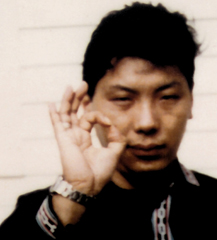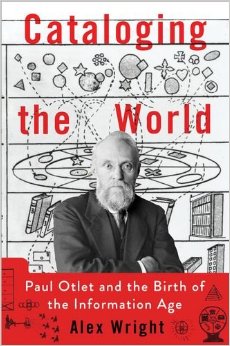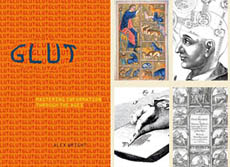Crazy Wisdom
December 16, 2011
Earlier this week I finally had the chance to see Crazy Wisdom, Johanna Demetrakas' long-awaited documentary about Chogyam Trungpa Rinpoche, attending a screening at the Rubin Museum followed by a Q&A with Robert Thurman.
In the spirit of full disclosure, I should acknowledge having made a couple of small financial contributions to this project while the filmmakers were trying to get it off the ground. And having spent a fair amount of time in and around the Shambhala community, I can hardly claim to be an impartial reviewer. Like countless other people, I have been captivated by the depth and profundity of Trungpa Rinpoche's teaching. That said, I have never felt obliged to tow any particular party line about some of the more controversial aspects of his legacy: the prodigious drinking, sexual escapades and the sometimes cult-like atmosphere that sprang up around him. And so I have often found myself wrestling with this film's central question: How could an ostensibly enlightened being act this way?
Alas, anyone approaching this film hoping to form some kind of solid judgment about Trungpa Rinpoche will likely come away disappointed. And I suspect that's more-or-less what Demetrakas intended. While the film certainly veers towards presenting Trungpa Rinpoche in a favorable light - I think the Times was probably right to opine that it "loves its subject too well" - it never descends into outright hagiography. And I was glad to see the film doesn't shy away from addressing some of the troubling aspects of his life, although it does perhaps skate past a few of the more shocking episodes (the Great Naropa Poetry Wars come to mind). Then again, it probably would have been easy enough to gather several films' worth of outlandish stories about Trungpa Rinpoche, without ever getting to the point of explaining why he really mattered: namely, his teaching.
The film does a wonderful job of capturing Trungpa Rinpoche at his luminous best in some of his early lectures; I only wish we had seen more of him in the act of teaching. Instead, the film leans heavily on the present-day recollections of his close students, who of course tend to remember him fondly; it certainly would have been interesting to hear at least a couple of dissenting views. For the most part, however, Demetrakas manages to steer clear of the pat explanations that one sometimes hears around the Shambhala community: that every single thing he did was enlightened activity, that such a realized master cannot be judged in terms of conventional morality, or that he somehow took on the neuroses of his students. While there might well be some truth to those perspectives, they also strike me as suspiciously lazy arguments.
I prefer to think of Trungpa Rinpoche's life as a kind of koan, one that doesn't lend itself to easy answers or fixed views. So I was glad to hear Pema Chodron and Diana Mukpo's frank admissions that they found him inspiring and, at times, baffling. This is more-or-less how I feel about him myself. And while I felt the film could have struck a more even-handed note, nonetheless I admired the way it managed to leave his legacy open to contemplation rather than trying to solidify around a particular interpretation.
In the follow-on Q&A session, Robert Thurman rose to a daunting occasion, expressing his admiration for Trungpa's gifts in no uncertain terms - singling out Cutting Through Spiritual Materialism
in particular - while declining to offer any particular excuses for his behavior. Thurman mentioned that he had originally been assigned to be Trungpa Rinpoche's English tutor in India in the early 1960s before unexpected circumstances intervened, and they would not meet in person until many years later in the 1970s; I couldn't help but wonder whether things might have played out differently for either man if they had they managed to forge a connection earlier in their lives.
In response to a question about whether Trungpa Rinpoche may have fallen victim to "self-deception" in his relation to alcohol, Thurman met the elephant in the room head-on, saying that he felt Trungpa Rinpoche may indeed have deluded himself about his alcohol use. He also suggested that some of his students may have borne some responsibility as enablers, arguing that students sometimes have an obligation to "go beyond" the guru yoga practice of viewing the teacher as an enlightened being to recognize the earthly needs of a fellow human being in danger (in fairness, the film did point out that a few of his closest students pleaded with him repeatedly to curtail his drinking). He likened the situation to letting the Dalai Lama get behind the wheel of a car: the student would be foolish to assume that his teacher's bad driving amounted to enlightened activity, and in fact a truly devoted student would probably have an obligation to intercede.
There was an interesting back-and-forth with one of Trungpa Rinpoche's former students in the audience, who asked whether it was perhaps necessary for him to die young (like his close friend Suzuki-roshi) in order for the teachings to fully blossom in the West. Thurman acknowledged that possibility, but also likened that argument to the rationale you sometimes hear that the Chinese did the world a favor by invading Tibet, because it triggered the spread of Tibetan Buddhism to the West; he challenged that perspective, suggesting that Tibetan Buddhism might well have found other routes to the West without Tibetans having to pay such an excruciating price.
Another questioner asked whether Trungpa's drinking could be seen as a lesson in accepting and even embracing one's own human frailties. While acknowledging the Buddhist point of view that we are all in some sense already enlightened, Thurman took exception to the "I'm OK/You're OK" interpretation of Buddhism, claiming for a moment to speak on behalf of Trungpa Rinpoche when he told the student (and I'm paraphrasing here): "Yes, you're perfect, and you could also use a little improvement."
Amen to that, sir.

Previously: Winnebago Man
Now available for pre-order:

Cataloging the World:
Paul Otlet and the Birth of the Information Age
by Alex Wright
A “shrewd, brisk biography.”
—Kirkus Reviews
GLUT:
Mastering Information Through the Ages
by Alex Wright
“A penetrating and highly entertaining meditation on the information age and its historical roots.”
—Los Angeles Times
